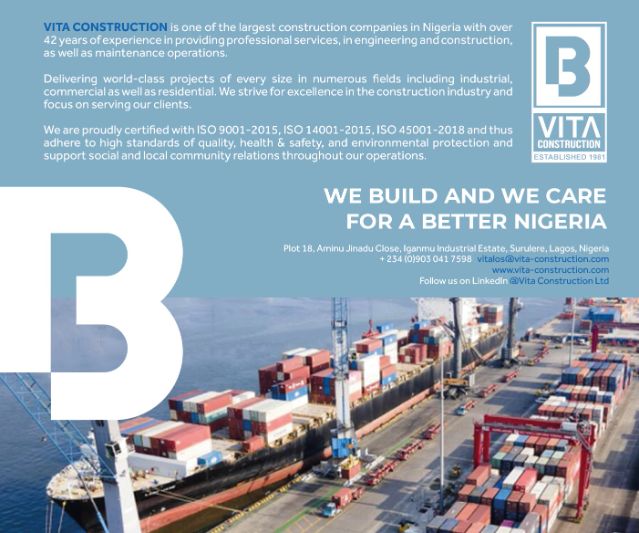 HEADLINENEWS.NEWS correspondent gathered that In the coastal town of Ibaka, in Mbo Local Government Area of Akwa Ibom State, Victoria Iyamore, 56, worries over her fish business amidst challenges of power supply and rising costs of essential resources.
HEADLINENEWS.NEWS correspondent gathered that In the coastal town of Ibaka, in Mbo Local Government Area of Akwa Ibom State, Victoria Iyamore, 56, worries over her fish business amidst challenges of power supply and rising costs of essential resources.
Mrs Iyamore depends on ice packs (popularly called ice blocks) to preserve her daily fresh fish catch from the nearby sea. She and her sons, Jude and Ernest, need a steady supply of ice blocks to preserve the fish they sell to customers.
However, the recent downturn in power supply and the high cost of petroleum products have disrupted the local fish trade.

“We use ice blocks to preserve our fresh fish here, but my biggest problem in recent days is poor power supply. I experienced wastage some days ago, and now I am troubled about how to cope with the high cost of fuel and poor power supply,” Mrs Iyamore said in March.
Ice block is water in its solid state, produced when water is poured into polythene bags and frozen using a machine.
Due to the poor power supply in Nigeria, there is a high demand for ice blocks, creating a lucrative business opportunity for people living in areas with more stable power supply or able to source alternative power supply.
The scarcity of ice blocks makes traders spend more money on fish preservation, with an attendant increase in the price of fish.
“Look at this piece of ice block; I used to buy it for N400 or N450, but now it is N800,” Mrs Iyamore said. “Some people are selling it for N1000. Now, I need about 200kg of prawns to send to my customers in Lagos, and each 100kg will require about 13 pieces of ice blocks.”

Fish production and trade are vital sources of livelihood for millions of Nigerians. They contribute significantly to the country’s Gross Domestic Product (GDP).
According to WorldFish, a non-profit research and innovation institute focussing on aquatic foods, Nigeria produces almost one million metric tons of fish per year, with the majority consumed domestically and around 10 per cent exported.
From fishermen and fish farmers to processors, traders and exporters, the sector supports economic activities that drive growth and development in the country.
Blessed with an abundance of waterways that sustain a rich diversity of marine life, Akwa Ibom has become a thriving hub for the fishing business.
In the state, the coastlines and rivers provide a natural habitat for a variety of fish species, with Catfish being a common catch there, alongside other favourites like Bonga fish, Croaker and other seafood.
The fishermen in the area still maintain the traditional method of fishing; using boats and nets for most of their operations.
Despite the potential in the sector, power supply for the preservation of their fresh catch remains a challenge for fish traders in the state.

Poor power supply in Nigeria
The poor power supply in Nigeria has been a major factor affecting businesses in the country. The country struggles with erratic power supply despite various interventions by successive governments.
In November 2013, the federal government privatised all generation and 11 distribution companies, retaining the ownership of the transmission company. This effort was to improve efficiency in the sector.
In 2019, former President Muhammadu Buhari signed a deal with Siemens, a German company, aiming to transform the power sector. The long-term plan set a target of 25,000MW, a significant increase from the meagre 4000 MW the country was managing at the time.
According to the Energy Progress Report of 2022, Nigeria has the lowest access to electricity globally, with about 92 million people lacking access to power.
In 2015, the Manufacturers Association of Nigeria (MAN) said its members spent over N3.5 trillion annually on alternative power supply.
In 2023, President Tinubu assented to the 2023 Electricity Act, automatically amending the Electric Power Sector Reform Act (EPSRA) signed into law by former President Olusegun Obasanjo in 2005. The new Electricity Act aims to dismantle the monopoly over the country’s power generation, transmission, and distribution at the national level, thereby fostering state and private sector investments in the sector.
However, in Akwa Ibom State, the Ibom Power Plant (IPP) is one of the first independent power plants in Nigeria, inaugurated by former President Olusegun Obasanjo in May 2007. The gas-fired power plant is located in Ikot Abasi Local Government Area of the state under a plan to bring an improved power supply to the state.
Despite the enactment of the new Electricity Act, which raised expectations for improved operation and power supply in the state, especially with the availability of the state-owned power plant, the situation remains unchanged. People still struggle with inadequate supply.
Challenges in Nigeria’s power sector
Nigeria’s power sector experiences many challenges, including electricity policy enforcement, gas supply, and vandalism.
Vandalism is a major problem to Nigeria’s power infrastructure, with criminals wreaking havoc on transmission lines, transformers, and substations.
Available data shows that between 2010 and now, the power grid has collapsed more than 150 times, and the causes are mostly attributed to vandalism and poor system maintenance.
These brazen acts not only disrupt the flow of electricity but also inflict substantial financial losses on power companies and other private businesses that rely mostly on power supply for their businesses.
Back to traders
Many traders and small business owners rely on generators, with the high cost of petroleum products eating deeply into their profits.
Ibaka and Oron – two of Nigeria’s major fishing hubs – have not been spared the impact of poor power supply.
Mary Effiong, another fish trader in Mrs Iyamore’s community, usually travelled to another local government area to get ice blocks for her business.
“How to get ice blocks is a problem in this business. Since last month, I have been going to the Ibeno Local Government Area to get ice blocks. Some communities in Ibeno have steady light because of the Mobil company located there,” Mrs Effiong said.

“If I spend like that daily to get the ice block, definitely, the selling price of the fish will be affected. If the power supply can be improved here, it will help the price of fish to come down,” she added.
Affiong Afahaene, a fish dealer in Ishiet, Uruan Local Government Area, stressed how the power supply situation threatens the profit opportunities in the fish business.
“I like this business; I have been in it for over seven years now,” he said. “At times, power supply will improve, sometimes it will not, and if we don’t have a good and steady supply of ice blocks to preserve the fish, the business will suffer.”
“If power supply can improve for us to have a good supply of ice blocks, it will be good for us and the business,” she added.
Prices of fish in Akwa Ibom
The high cost of ice blocks has contributed to the rise in the price of fish and other marine foods like prawns.
The price of prawns has increased significantly, with one kilogramme selling for N18,000 against its previous price of N12,000.
A medium-sized “fresh (cat) fish” previously sold for N2,000 now goes for N3,000, while a bigger “fresh fish” is sold between N15,000 and N17,000, compared to its previous price range of N10,000 to N12,000.

Okon Edu, a customer who came to buy fish for family consumption, said he used to buy fresh fish at a cheaper rate, regardless of the season.
“The main season for fresh fish is around June; despite that, I used to buy a good-sized fish for around N2,500 or so. But now, I have to spend about N5,000,” Mr Edu said.
“In June, the prices will fall because, during that time, fresh fish will be much more available in the market,” he added.
Another customer who spoke to PREMIUM TIMES, Christiana Enye, expressed concern about the current price of fresh fish.
“I can’t buy it the way I used to before; I have to reduce the intake of fresh fish. This small size I am carrying, I got it for N3,500. Initially, I used to buy it for around N2,000,” Miss Enye said.
Expert’s view
According to Victor Ebong, a professor of Agribusiness at the University of Uyo, there is a need to “regulate” fuel prices in Akwa Ibom.
“Power supply in many areas in the state is relatively poor. Fuel prices now are significantly influenced by the ongoing challenge of subsidy removal and the current scenario witnesses a surge in fuel costs, leading to disparate pricing strategies among fuel stations.
“Therefore, it is crucial for the government to establish monitoring teams tasked with ensuring uniform pricing across all stations. Any station unwilling to comply with the stipulated prices should face consequences, such as temporary closure by the monitoring teams,” Mr Ebong said.
A development expert in the state, Ubong Edet, called for infrastructural improvement in the state.
“Government should invest in the improvement of the local power infrastructure to ensure a consistent and reliable power supply for businesses. This could involve collaboration between government bodies, private enterprises and international organisations,” Mr Edet said.
He noted that traders could also explore and implement energy solutions such as solar systems to supplement the existing power supply which will help to reduce dependence on the main power grid and as well ensure a more stable energy source.
Dan Kunle, an energy and business consultant, said the government requires substantial investment in national energy infrastructure while also providing a short-term intervention to the traders.
“It is important to emphasize that electricity serves as the cornerstone of numerous businesses. The government needs large-scale investment in energy infrastructure for the country.
“However, in the short term, there is a pressing need for interim solutions, such as providing solar systems for fish traders. While these interventions may not ensure long-term sustainability, they can help stabilise prices,” Mr Kunle said.










